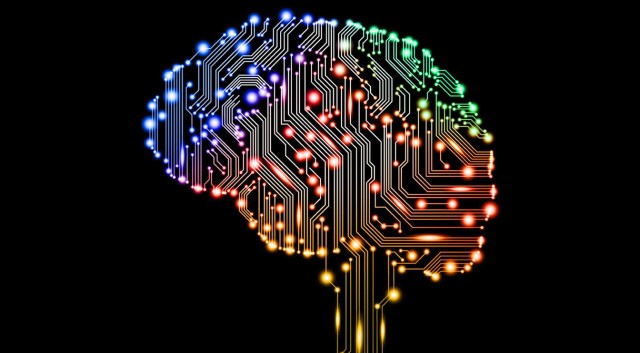
The Road to Superintelligence
What Is AI?
If you’re like me, you used to think Artificial Intelligence was a silly sci-fi concept, but lately you’ve been hearing it mentioned by serious people, and you don’t really quite get it.
There are three reasons a lot of people are confused about the term AI:
1) We associate AI with movies. Star Wars. Terminator. 2001: A Space Odyssey. Even the Jetsons. And those are fiction, as are the robot characters. So it makes AI sound a little fictional to us.
2) AI is a broad topic. It ranges from your phone’s calculator to self-driving cars to something in the future that might change the world dramatically. AI refers to all of these things, which is confusing.
3) We use AI all the time in our daily lives, but we often don’t realize it’s AI. John McCarthy, who coined the term “Artificial Intelligence” in 1956, complained that “as soon as it works, no one calls it AI anymore.” Because of this phenomenon, AI often sounds like a mythical future prediction more than a reality. At the same time, it makes it sound like a pop concept from the past that never came to fruition. Ray Kurzweil says he hears people say that AI withered in the 1980s, which he compares to “insisting that the Internet died in the dot-com bust of the early 2000s.”
So let’s clear things up. First, stop thinking of robots. A robot is a container for AI, sometimes mimicking the human form, sometimes not—but the AI itself is the computer inside the robot. AI is the brain, and the robot is its body—if it even has a body. For example, the software and data behind Siri is AI, the woman’s voice we hear is a personification of that AI, and there’s no robot involved at all.
Secondly, you’ve probably heard the term “singularity” or “technological singularity.” This term has been used in math to describe an asymptote-like situation where normal rules no longer apply. It’s been used in physics to describe a phenomenon like an infinitely small, dense black hole or the point we were all squished into right before the Big Bang. Again, situations where the usual rules don’t apply. In 1993, Vernor Vinge wrote a famous essay in which he applied the term to the moment in the future when our technology’s intelligence exceeds our own—a moment for him when life as we know it will be forever changed and normal rules will no longer apply. Ray Kurzweil then muddled things a bit by defining the singularity as the time when the Law of Accelerating Returns has reached such an extreme pace that technological progress is happening at a seemingly-infinite pace, and after which we’ll be living in a whole new world. I found that many of today’s AI thinkers have stopped using the term, and it’s confusing anyway, so I won’t use it much here (even though we’ll be focusing on that idea throughout).
Finally, while there are many different types or forms of AI since AI is a broad concept, the critical categories we need to think about are based on an AI’s caliber. There are three major AI caliber categories:
AI Caliber 1) Artificial Narrow Intelligence (ANI): Sometimes referred to as Weak AI, Artificial Narrow Intelligence is AI that specializes in one area. There’s AI that can beat the world chess champion in chess, but that’s the only thing it does. Ask it to figure out a better way to store data on a hard drive, and it’ll look at you blankly.
AI Caliber 2) Artificial General Intelligence (AGI): Sometimes referred to as Strong AI, or Human-Level AI, Artificial General Intelligence refers to a computer that is as smart as a human across the board—a machine that can perform any intellectual task that a human being can. Creating AGI is a much harder task than creating ANI, and we’re yet to do it. Professor Linda Gottfredson describes intelligence as “a very general mental capability that, among other things, involves the ability to reason, plan, solve problems, think abstractly, comprehend complex ideas, learn quickly, and learn from experience.” AGI would be able to do all of those things as easily as you can.
AI Caliber 3) Artificial Superintelligence (ASI): Oxford philosopher and leading AI thinker Nick Bostrom defines superintelligence as “an intellect that is much smarter than the best human brains in practically every field, including scientific creativity, general wisdom and social skills.” Artificial Superintelligence ranges from a computer that’s just a little smarter than a human to one that’s trillions of times smarter—across the board. ASI is the reason the topic of AI is such a spicy meatball and why the words “immortality” and “extinction” will both appear in these posts multiple times.
As of now, humans have conquered the lowest caliber of AI—ANI—in many ways, and it’s everywhere. The AI Revolution is the road from ANI, through AGI, to ASI—a road we may or may not survive but that, either way, will change everything.
